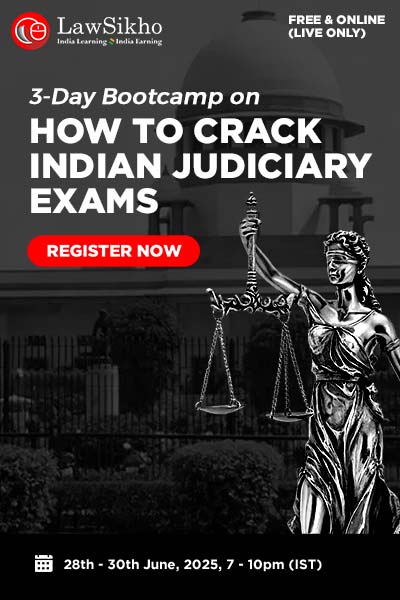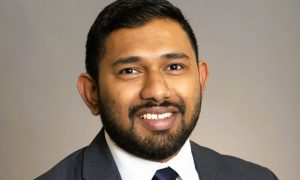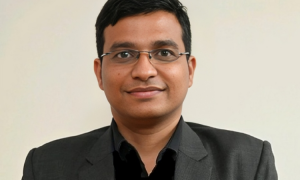This interview has been published by Anshi Mudgal and The SuperLawyer Team

Your impressive journey in the legal field is truly inspiring. What first motivated you to pursue a career in law, and were there any pivotal moments or formative experiences that influenced your decision to embark on this path?
My introduction to law was due to my father. He was in the administrative services. While in service, he was posted as an Additional Collector in Pune. The charge required him to conduct appeals arising from revenue authorities. I would see him study the case, read law, dictate orders, which fascinated me. He would often say that having knowledge of law is extremely crucial for every citizen and empowering. That stuck with me.
I was always interested in social science and hence took up Arts stream in junior college. Those two years in Ferguson College, Pune, helped me gain a basic understanding of what law as a subject would entail. I had a wonderful professor of Political Science in Fergusson, she motivated me to study law. Fergusson also conducted lectures and talks by luminaries in the profession, which further inspired me.
With a decent score in 12th board exam and with a State Scholarship, I qualified for admission in the prestigious ILS, Pune.
Your decision to pursue an LL.M. in Corporate Law at Queen Mary University in London is a remarkable step in your career. What specifically attracted you to this area of specialization, and how did your experience there differ from studying in India? Could you share any memorable moments from that time?
Subjects such as corporate governance and investment in developing countries were of particular interest to me. So I decided to explore further through a Masters program. Queen Mary, University of London, had one of the best LLM programs.
When I went there, the college offered induction sessions, offering the students to attend classes of all subjects and then take a final call. Having attended various lectures and upon having a basic understanding of the structure and the modules, I decided to opt for LLM in Corporate Law, which included corporate governance and investment in developing countries.
Exposure to a different education system was interesting, as it promotes deeper understanding of the subject, with extensive reading lists. The attempt is to introduce a student to both sides of any given concept and promote analytical thinking. London is a melting pot of international students, interaction with people from diverse backgrounds gives you perspective and appreciation for ideas and expressions of a problem.
The techniquesI learnt during LLM, of reading and research, continue to help me in practice as well.
Your career has clearly been shaped by a wealth of experience. In the early stages of your professional journey, what were some key experiences that helped refine your skills, particularly in Arbitration Law, and deepened your understanding of the field?
I was introduced to arbitral proceedings quite early in my career. In my experience, one should not confine oneself to only a particular subject of law. A holistic experience is necessary, especially court appearances and knowledge of trial. What truly helped me was observing hearings in Court Rooms. The lessons one can take away by simply sitting in court and observing court proceedings are massive.
Having been involved in a variety of suits, writ petitions, and trials, your diverse experience speaks volumes. Which case stands out as one of the most interesting, and how did you navigate it?
One of the cases which I dealt with, in early years of my independent practice, was that for Wardha Municipal Council. The issue involved was regarding a works contract and whether the disputes arising out of a work contract can fall within ambit of MSMEDAct,2006. The stage at which the brief came to me was when the order of the lower court rejecting relief under Section 9 Petition was stayed by the Hon’ble High Court. When I read through the papers, I engaged with the executive engineer, who was in charge of the project on behalf of the Council and tried to understand how the contract actually worked. Having realised that it was a composite contract, I re-visited the legal definition of the term “works contract” and the jurisprudence regarding the same. The jurisprudence on the issue was settled by a judgement of the Hon’ble Apex Court and the Hon’ble High Court Bombay, observing that a works contract is a composite contract and hence will not be governed by provisions of the MSMED, Act, 2006. The other issue involved was whether an MSME can take benefit of the MSMED Act, retrospectively, as it registered itself after being awarded the contract. The matter was heard extensively and the Hon’ble Court was pleased to hold in my favour. Subsequently, various High Courts followed the said judgement.
What was interesting about the matter was the research aspect as also the interest I developed in understanding the MSMED, Act, 2006. The Act being an important and beneficial piece of legislation, I was intrigued by it and by researching more, I have also dwelled into writing articles on varied aspects of the MSMED Act.
With your extensive background in handling numerous arbitration matters, what do you foresee for the future of arbitration in the country, and how do you see technology influencing the ADR process and its mechanisms?
I believe that given the current socio-economic status of our country, globalization and with the aim is to make our country a hub/center for international arbitration, the scope and importance of ADR process is going to be massive. Another reason is the fact that it is less time consuming and cost effective. Speaking of commercial disputes, with compulsory pre-mediation requirements under the Commercial Courts Act, 2015, I have seen a large number of commercial disputes being settled at pre-mediation stage. May it be commercial disputes or private disputes, the parties involved will always prefer an effective solution to their problems, which is offered by ADR. Having said that, it is also necessary that institutional arbitrations and mediations are promoted. The advantage that such institutional centers would hold, is availability of technical experts, who can help resolve issues in an effective manner.
Technology and its development has been positively impacting all professions, including the legal profession. Post COVID-19, the comfort and ease in conducting proceedings virtually, has grown immensely. The same is convenient and cost effective. Technology has also given impetus to ODR (Online Dispute Resolution) and one can see a rise in ODR.
Your role as a visiting professor at both NUJS and Government Law College Mumbai adds an incredible dimension to your already impressive career. What motivated you to take on this role, and how does it complement your independent legal practice?
During COVID 19 and the Lockdown, I had an opportunity to co-author an article with a friend of mine, which was carried in the Asian Business Law Journal. It was this article which caught the attention of one of the members of NUJS and they approached my friend and me to conduct lectures.
May it be NUJS or GLC, Mumbai, in both the cases I realised that students are extremely well read and aware. The Internet facilitates immediate access to information. The only edge a lecturer has, is the practical experience of how law is interpreted and applied by Courts of Law.
While preparing for the lectures, I referred to various commentaries and reading materials, which helped me brush up my knowledge. The experience has been extremely enriching. I have thoroughly enjoyed it.
Given your wealth of experience across various areas of law, your advice would undoubtedly be invaluable to aspiring legal professionals. What guidance would you offer to students looking to build a successful career in law? Are there specific resources or strategies you would recommend?
Over the years I have realised that litigation requires a lot of persistence, reliance and tests you at all times. However, it is one of the most satisfying professions.
My senior Mr. M.M. Vashi (Senior Advocate), would always stress on the necessity of reading your brief cover to cover and have a thorough research. He would always maintain that the skill of a lawyer always lies in sticking a fine balance between being an officer of the court and presenting your case persuasively. The fear of the outcome is natural but that shouldn’t deter you from putting forth your case in the best and the most fair manner possible.
This advice continues to guide me as an independent practitioner.Observing and hearing court proceedings is another excellent way of learning both the law and court craft.
Throughout your distinguished career, what strategies have you used to maintain a healthy work-life balance? What advice would you give to others striving to balance their professional ambitions with personal commitments?
It’s extremely important to have a supporting family and good friends, both , within and outside the profession. My family has always been a motivating and an anchoring factor in my life.
During down time, especially on a Friday evening, my other lawyer friends and I often go out to explore different cafes in the city.
I am personally a great believer in leading a healthy lifestyle and having a dedicated fitness regime. My workout sessions are like mediation for me. It not only helps as a stress buster but is also refreshing. I truly believe that if one is looking for longevity in any profession a healthy body and mind is crucial. It brings in the required discipline, a sense of routine and dedication, essentially, all attributes necessary for a steady career, in whichever opted field.
I would surely recommend making concrete efforts in carving out some “me time”, honing a hobby, which helps you unwind and refresh.
Get in touch with Aparna Devkar –


























